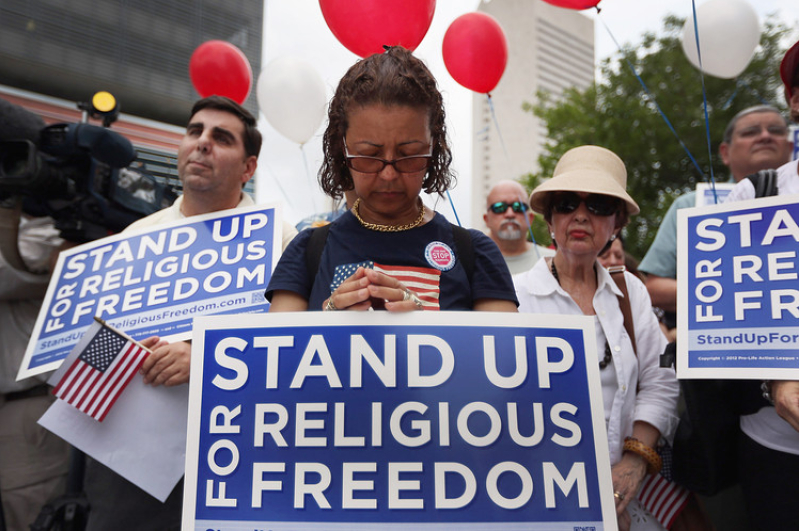
Christians who identify with right-wing politics in the United States have been dismayed by recent Supreme Court rulings in favor of Obamacare and the legalization of same-sex marriage. This has called into question whether or not the alliance between evangelical and Catholic conservatives is under more strain than ever.
According to Heather Digby Parton of Salon, current Republican presidential candidate Sen. Ted Cruz of Texas claimed in a recent interview that the real victims of discrimination in the United States were evangelical Protestants. He contended that the Supreme Court did not represent "flyover country" and the people who live there.
"There are no Protestants, no evangelicals, on the Court," Cruz said. "They think our views are parochial and don't deserve to be respected. What a crazy system to have the most important issues of our day decided by unelected lawyers."
Dixon pointed out that Justice Antonin Scalia made similar comments in his dissent on Obergefell v. Hodges, where the Supreme Court ruled in favor of same-sex marriage by a 5-4 vote.
"[T]o allow the policy question of same-sex marriage to be considered and resolved by a select, patrician, highly unrepresentative panel of nine is to violate a principle even more fundamental than no taxation without representation: no social transformation without representation," Scalia wrote.
According to Parton, the comments from Cruz indicated that there may be a significant political shift in the religious right.
"The alliance between conservative Catholics and evangelical Christians has been one of the most fruitful political collaborations in our history," Parton wrote. "And it was, for all of its pursuit of noxious public policy, a rather weird demonstration of American progress."
Parton reported that throughout history, there was once "a tremendous amount of anti-Catholic bigotry in the United States." She looked at the reasons why anti-Catholic sentiment was strong in the U.S. in times past.
"Some of this was really ethnic in nature, holdovers from our European religious wars and nationalist prejudice, and some of it was based upon serious theological differences," Parton wrote. "American evangelical Protestantism was as defined by its rejection of Catholic doctrine as it was by its own."
Parton noted that as a sign of progress, President John F. Kennedy was elected in 1960, the first Catholic to hold that important office. Back in 1928, a major political party nominated Al Smith, a Catholic; however, Protestants in the South rejected him over fears that the pope would control the U.S. government.
"He had been forced to go through a lot of hoops to distance himself from the specter of the Pope running America, but he managed to do it," Parton wrote of Kennedy.
Parton highlighted that conservative evangelical Protestants came together in the 1980s and formed the political coalition known as the Religious Right, headed by Jerry Falwell and the Moral Majority. Franklin Foer elaborated on the partnership between Catholics and evangelical Christians in an article for The New Republic back in 2005.
"The emergence of the Court's Catholic bloc reflects the reality of social conservatism: Evangelicals supply the political energy, Catholics the intellectual heft," Foer wrote.
However, Parton believed that the political union between Catholics and evangelical Christians may be starting to fall apart.
"For a while now, there's been tension among the Catholic faithful between younger members, who want to see the church place a greater emphasis on traditional Catholic teachings of social justice, and the hard core conservatives, who emphasize sexual morality and traditional family values," Parton wrote. "And Pope Francis's recent statements on the former have been very upsetting to the latter."
Parton warned that this schism between Catholics and evangelicals did not necessarily mean the Christian political right was in danger of collapsing anytime soon in the United States.
"Their religious coalition may be a little bit shaky but the evangelical right is solid as a rock and more influential in the party than ever," Parton wrote. "The Catholics may find themselves on the outside of the Big Tent looking in at an old fashioned revival meeting and they may not be welcome anymore."






